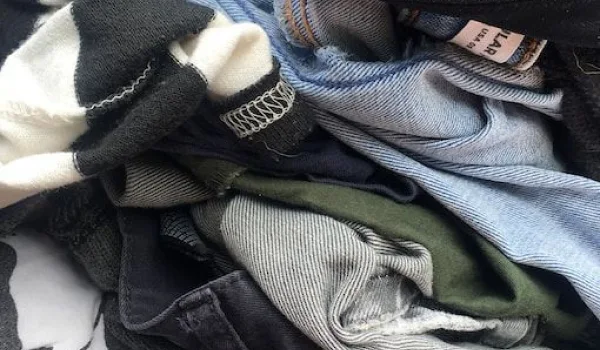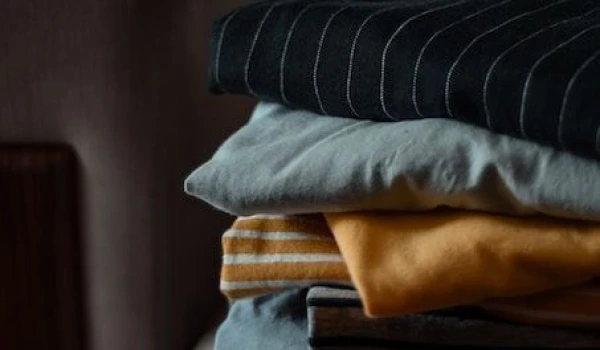Introduction
A comforter is a very essential piece of bedding that keeps us warm and cozy during the winter months. The weight and size of a comforter can be a factor that prevents us from wanting to wash it, yet it is necessary to keep your comforter clean because it can impact the quality of your sleep.
Most people prefer to wash it as sparingly as possible. This is especially true when they use flat sheets or duvet covers with their bedding. This article will cover how often you should wash your comforter and what factors should be considered when doing this.

What Factors Should I Consider When Washing a Comforter?
Generally speaking, you should wash a comforter every two to three months, in addition to a wash at the beginning and end of the winter season. A few other factors to consider are whether the comforter is old, the fabric it is made of, the number of people using the bed, and whether any of them have any allergies. Going further into the details:
-
Fabric Type: The most common materials used for comforters are cotton, wool, silk, and down (from a goose or duck). The best varieties are expensive – pay close attention to the care label to ensure you clean the material as directed.
-
Usage: How often you wash a comforter will also depend on the number of people using it and the number of hours it is used – think of it as the wear and tear it receives.
-
Allergies: Comforters that are made of materials that can cause allergies will need to be washed more frequently. Dyes, synthetic materials, and feathers are known to cause allergies in most people. The presence of dust mites, dead skin cells, and pet dander on the bed may also contribute to allergies.
-
Duvet Cover: Comforters that have a duvet cover will need to be washed less frequently than comforters that do not. This is because the duvet cover prevents the body from coming in direct contact with the comforter.
-
Bedding Material: If the bedding material needs frequent washing, you should include the comforter in the wash as well. Stains from oil, sweat, grease, and other materials will likely sully the bedding material and lead to having to wash the comforter as well.

How Often Should You Wash Your Comforter?
A new comforter should be washed as soon as it arrives from the store. This is because factories and stores are full of dust and other materials that can affect the cleanliness of the comforter. This is recommended even if the comforter comes in protective packaging.
If the comforter does not have a duvet cover, it should be washed once every three months. If it does, it can be washed less frequently, maybe once every three to six months. Scenarios that may require frequent washing include whether you have oily skin, use hair dyes, or suffer from allergies. If kids or pets share your sleeping space, there are dust mites or other allergens, you will have to wash your comforter more frequently, maybe once every two to three weeks, or use the services of a local laundromat.
When washing comforters that are made of synthetic material, you need to strictly follow the manufacturer's instructions, so make sure you read and follow these carefully. In particular, if the comforter is made of down, it will require a different way of washing.
However, to be safe, monthly washing of your comforter will prevent the accumulation of dirt and bacteria and have you sleeping more comfortably. Note that washing wool comforters can be tricky because they can shrink in the wash.
Steps to Wash and Dry a Synthetic Comforter
-
Set the washing machine temperature to either lukewarm to cold, as anything warmer could damage the comforter's fibers.
-
Use a small amount of laundry detergent. If you use too much, you could leave residue on the filling.
-
Wash the comforter on a delicate or gentle cycle with an extra rinse cycle if possible. Use a stain remover if needed.
-
After the cycles are complete, assess the comforter for dampness. If it is still sopping wet, put it back in the washing machine for another spin cycle to help reduce drying time.
-
Continue by loading the comforter in the dryer with four to five wool dryer balls (they are the size of tennis balls) on a low heat setting (which can take up to a few hours). Even if the comforter seems dry, it's better to over-dry the fabric, as wet filling could cause mold.
-
Check the comforter every 30 minutes to redistribute the filling and break up clumps until it is completely dry.
Steps to Wash and Dry a Down Comforter
-
Only wash down comforters with a front-loading washer. The jerking action of the agitator in a top-load washer may cause damage by packing the down. To hand wash down, place it in a bathtub filled with warm water and detergent.
-
Gently squeeze the soapy water through the down-filled item, then drain the wastewater.
-
If you have a front-loading washer, choose a cold temperature setting (it's the safest wash temperature since the fabric can shrink up to 10% in hot water).
-
Use the fastest spin speed to remove as much moisture as possible.
-
Add a laundry detergent of your choosing, and avoid using fabric softener, as this will coat the down and reduce its fluff.
-
Once the wash cycle is complete, run the dryer on air fluff or the lowest temperature possible since high heat can scorch down and damage the fabric.
-
Dry with two to three wool dryer balls for about three to four hours and check every 30 minutes to break up clumps and ensure the down is not too warm.

How Often Should Other Bedding Garments Be Washed?
In addition to comforters, there are several other bedroom items on top of the mattress that need washing, such as:
-
Pillowcases: Since oil and dirt from your hair and face rub naturally into the fibers of the pillowcase every night, it is suggested that you wash these every five to seven days. You may even want to wash them more frequently if you have acne or other allergies.
-
Sheets: Sheets like bed linen come in direct contact with anyone using the bed. It is suggested to wash bed sheets once every week to stop the accumulation of bacteria, dirt, dust mites, and other allergens on them. If you have pets or small children or live in a dusty or sandy locale, you will need to wash your sheets once in five days to stop germs. In addition, more frequent washing needs to occur when you are sick.
-
Duvets: You should wash your duvets once every few weeks. They do the job of protecting your comforter from dirt between washings.

Take Care Of Your Bedding with Rinse
Washing comforters, duvets, flat sheets, and other bedding items can take too much time and energy. If you have a small washing machine, it may struggle under the pressure.
Rinse is a professional dry cleaning service that can solve all these problems for you. We have the required commercial washers and expertise to make your bedding items clean and comfortable.
Regular laundering of bedding items will give you sound sleep at night and keep you healthy. Contact us via text, our website, or app to have one of our Valets come pick up and drop off your duvets, comforters, and sheets. We guarantee that you will love our services!
Contact us at Rinse today to see our skill in action.

















